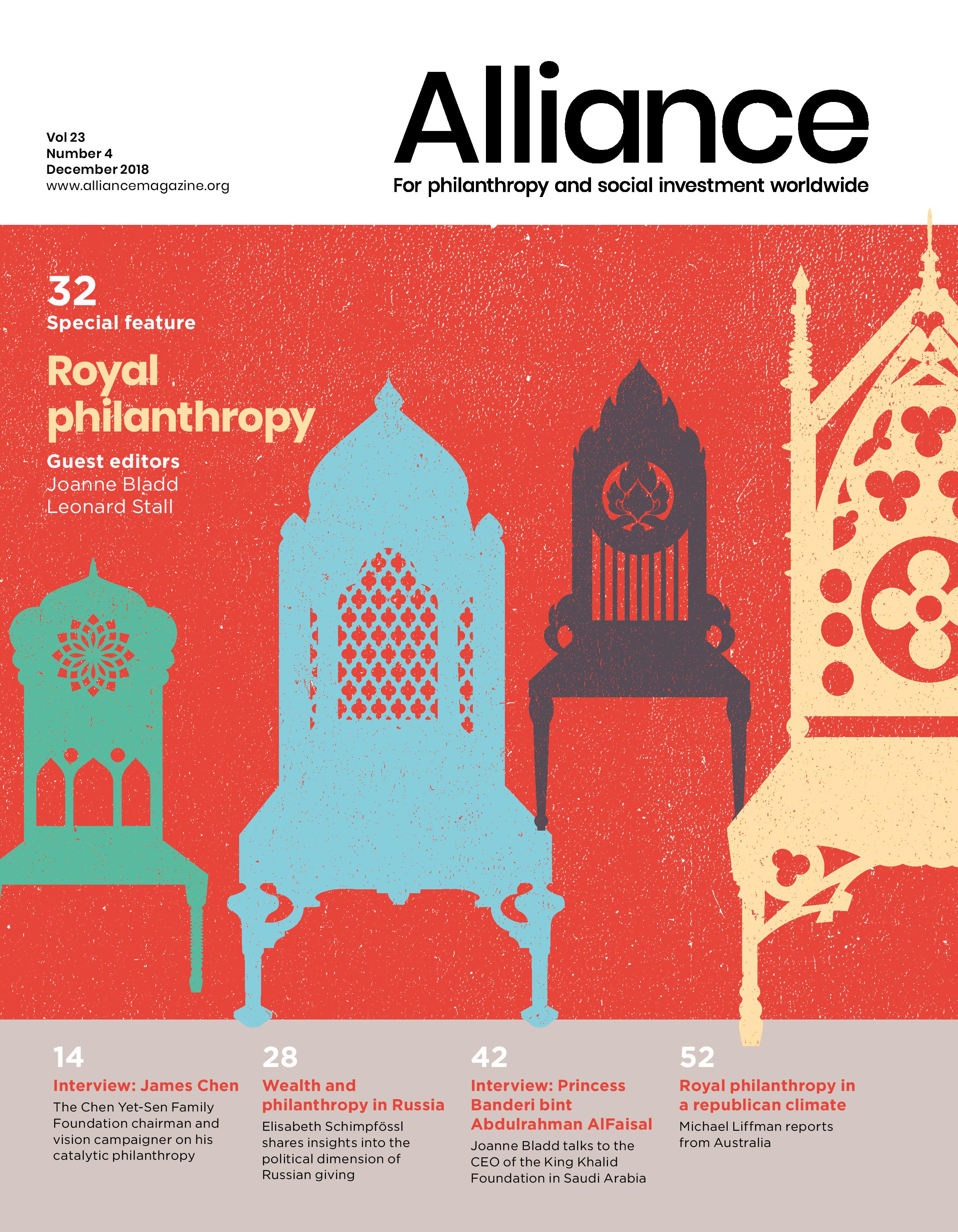As Thai philanthropy changes, some of the country’s royal family have led the way
There has been a transformative shift in Thai philanthropy in the past decade. The next generation of philanthropists have much more exposure to development issues on the ground, and have learned of emerging social investment mechanisms and corporate social responsibility practices. All of this has occurred against a changing landscape in Thai politics and the economy, along with the rise of globalisation and technology.
Thai philanthropy’s contribution to society has also reached far beyond traditional development issues and in some cases also across Thailand’s national borders. In the midst of this change, members of the Thai royal family remain key conveners of certain environmental and social issues, and have become the active voices for many groups of voiceless and underserved populations.
A long tradition of service
In some ways, this typifies the broader role of the royal family in Thai society. In the Hall of Inspiration, a museum that features the upbringing and contribution of the Mahidol family to Thailand, there is an inscription in one corner which reads ‘not noble by birth, yet noble by deeds’. It sums up the living principle of the royal family members and goes some way to explain why the monarchy has become the most highly regarded institution in Thailand.
This tradition of service has produced not only continuity, but important changes, and has ushered in new concepts of giving, embracing groups which previous philanthropy had often neglected.
Princess Srinagarindra, the mother of the late Kings Ananda Mahidol Rama VIII and Bhumibol Adulyadej Rama IX, was born a commoner and raised her children as a relatively normal family in Switzerland. The children had to do household chores, cycle to school on their own and take responsibility for themselves. This helped to instill in them the idea that royalty is not just a privilege but a responsibility and commitment to work for people, an idea that has found expression in many past monarchs.
Changing the trends of Thai philanthropy
This tradition of service has produced not only continuity, but important changes, and has ushered in new concepts of giving, embracing groups which previous philanthropy had often neglected. The late King Bhumibol Adulyadej’s philosophy was ‘understand, access and develop’. This philosophy has been practised in different ways by royal family members drawing on their own expertise.
The hands-on, area-based and human-centred approach of the monarchy to the public and social services has shed a new light on how philanthropy could become more strategic and could improve people’s lives.
One of the most notable examples is Princess Pa, the oldest daughter of King Maha Vajiralongkorn Rama X. A lawyer by training, she has focused her philanthropy on promoting the rule of law and strengthening the criminal justice system. Another example is Princess Chulabhorn, the youngest daughter of King Bhumibol Adulyadej Rama IX. A scientist by training, she is primarily active in the field of scientific research.
More broadly, the royal family in general has spent years establishing and working on projects ranging across education, healthcare and agriculture in order to improve the lives of Thailand’s poorest and most vulnerable citizens.
Influencing the focus of giving
In addition to their direct work, Thai royals have shaped philanthropy in Thailand by influencing the allocation of philanthropic capital from wealthy families and large firms alike. Giving has always been a part of Thai culture, rooted in Buddhist tradition, but the majority of givers have seen philanthropy as merely charity rather than a lever for change. The hands-on, area-based and human-centred approach of the monarchy to the public and social services has shed a new light on how philanthropy could become more strategic and could improve people’s lives. As a result, royal initiatives, social projects and for-purpose organisations established or endorsed by royal family members are given priority for financial and in-kind support from both individual and corporate philanthropists. Some have even made donations direct to the monarchy to be used as they wish.
A public prosecutor, Princess Pa’s career has given her first-hand experience of Thailand’s most vulnerable populations in their most vulnerable phase in life, while most other next generation philanthropists have derived their passion from travel and technology.
Royal family members have also been instrumental in raising awareness on overlooked but critical development issues. For example, Princess Srinagarindra’s Doi Tung Development Project advocates using economic empowerment to end deforestation and begin reforestation in Chiang Rai. This area-based development model has since been replicated in other parts of the country.
The example of Princess Pa
The philanthropic journey of Princess Pa is a great example of this change. A public prosecutor, Princess Pa’s career has given her first-hand experience of Thailand’s most vulnerable populations in their most vulnerable phase in life, while most other next generation philanthropists have derived their passion from travel and technology. This has led to her interest in improving the living conditions and prospects of female prison inmates, a beneficiary group least appealing to local philanthropists. In Thailand, people like to give the underprivileged a chance, but not a second one. Her dedication to the treatment and support for female offenders is hence rare.
In addition to her duties as prosecutor and diplomat, through which she campaigns on this issue, Princess Pa has initiated two projects to promote reintegration of women prisoners into society, Kamlangjai (Inspire) and Enhancing the Lives of Female Inmates (ELFI). With her as an advocate, various multi-sectoral partnerships have been formed to support the initiatives. Most importantly, the Thai public in general has become more aware of the issue and of the importance of strong institutions and fundamental human rights. As a result, there is greater recognition of the institutions of justice as a critical factor in building a fair and just society – no small achievement.
The author of this article wishes to remain anonymous due to recent transitions in the Thai royal family.






Comments (0)